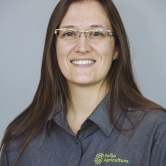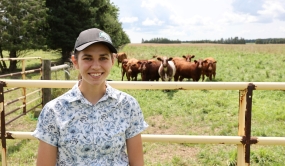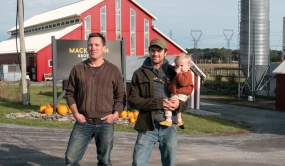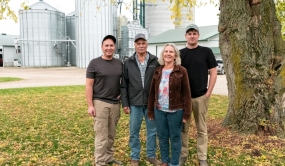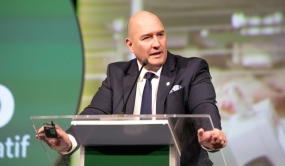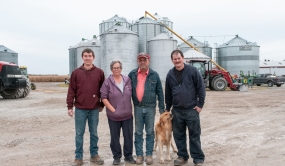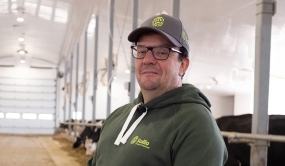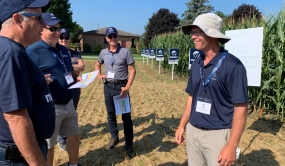The importance of getting our horse ready for the winter
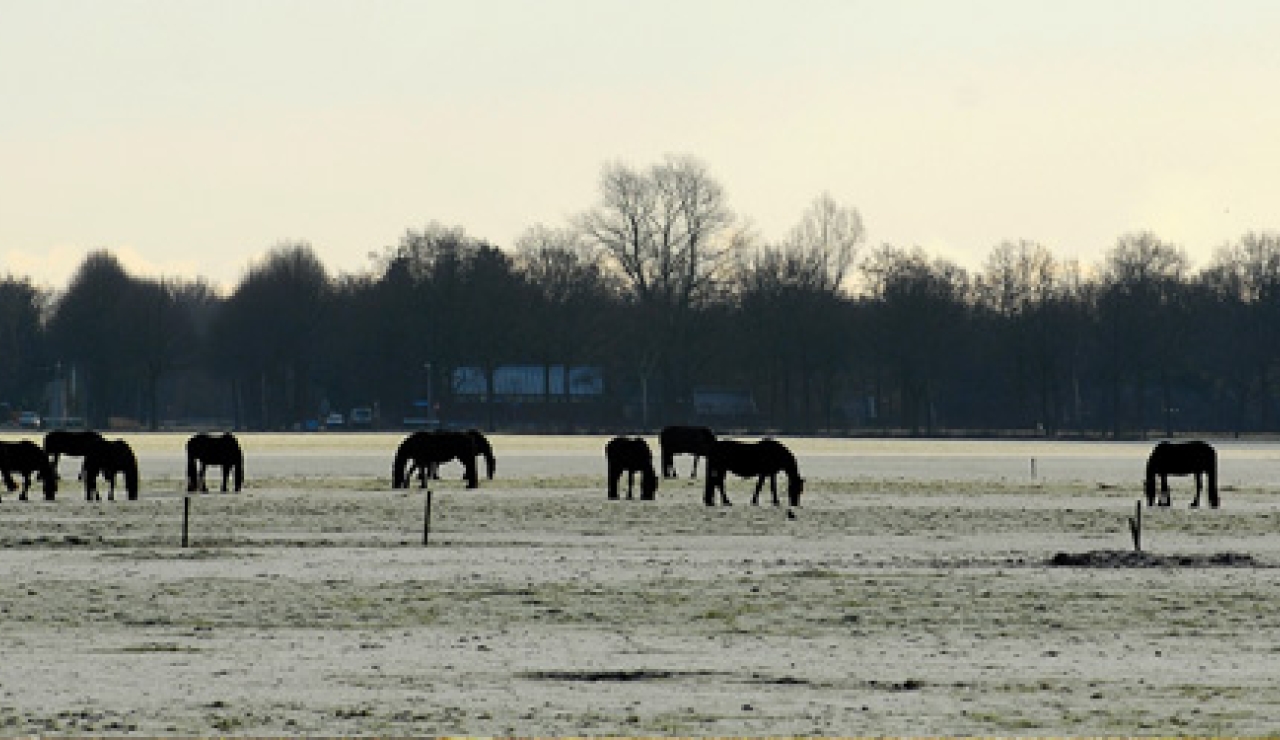
You can read the full text at: celebrite.coop/ (in french only)
Horses have a great ability to adapt to their environment. However, it is important to prepare them for the cold season by providing adequate housing and nutrition.
Horses that spend winter in temperature-controlled stables will hardly see a difference. All the same, the outside temperature may affect the temperature in the stable, the level of humidity and ventilation. While important to change, these three elements are often beneficial: in the stable, horses are usually more comfortable with a cooler temperature with low humidity and without high concentrations of ammonium gas. Outside however, conditions may change quickly and several basic elements should be kept in mind.
Housing
Horses need to be acclimatized to changes during fall to develop their winter coat. But they should also be offered protection from the elements as well.
The paddock should be large enough, have solid ground that is clutter-free, and have a shelter that allows all horses to have access at the same time. Plan for a sufficient amount of space; this will reduce the chance of fights breaking out and displays of dominant behaviour. Good bedding will keep the horses clean and dry. The paddock and shelter must be strategically placed in order to protect the horses from prevailing winds, rain and snow. Planning the feeder and water troughs in relation to the shelter is also important. Most often, the three structures are set up in a triangle to force the horses to keep to their path and remain active.
Feeding
Even if no changes in activity occur between summer and winter, the maintenance requirements for horses increase as the temperature drops. The horse needs more calories to maintain the same body condition, even more so if there is an increase in activity. A horse is very adaptable and is capable of supporting itself at lower temperatures to a certain extent. However, once a certain threshold has been exceeded, the horse will require a higher calorie intake.
Body fat forms an insulating layer and provides an energy reserve. The horse will draw on this reserve if it does not take in sufficient calories. For these reasons, avoid drawing down on this reserve unless the horse has an excessive body condition. If the body condition is optimal, compensate for the increase in caloric requirements by supplying additional hay and concentrates that are rich in fiber and fat such as Célébrité Lino-Force. Usually, for horses kept outside, hay is fed free choice. It is important to also consider the quality of the coat, which has an enormous influence on the horse’s resistance to the cold. Therefore, a feeding program that is balanced in minerals, vitamins and essentials fatty acids is recommended.
Importance of monitoring
A careful owner will maintain his or her horses in good condition during summer to avoid the additional stress during winter (body condition, check-up with the vet, hoof trimming and dental care). In winter, frequent checks on body condition and overall state of health are essential. Any causes of abnormal behaviour (weight loss, changes, and symptoms of illnesses) must be identified and corrected quickly.
Sources:Equine Winter Nutrition: Marcia King, 2005.
Feeding horses when temperatures drop: University of Maryland College of Agriculture and Natural Resources, 2008.
